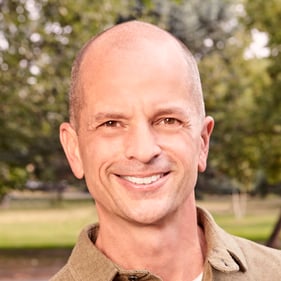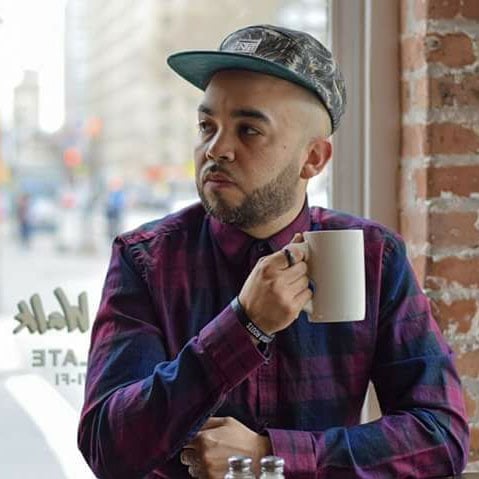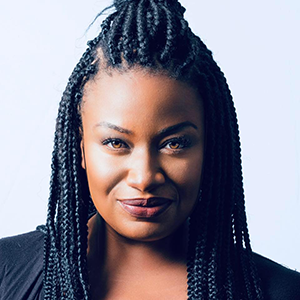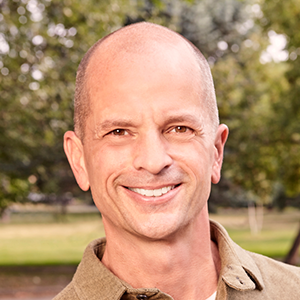Democrats have promoted that message ever since Donald Trump swept into office in 2016.
Yet voter turnout in America is woefully low in comparison to other developed nations. In 2016, just more than 55 percent of the voting-age population went to the polls. Far fewer vote during midterms, and that’s especially true for Democrats. But if Trump’s historically dismal approval ratings are any indication, 2018 may be a outlier.
Why does this matter for people on the ground? Well, it’s not for the political races you may think. Although cable news has been saturated for months with coverage of Congressional elections, groups across the country, including the American Civil Liberties Union (ACLU), have been initiating considerable efforts to educate the public about what they can do to improve the system. The elected officials at the center of those campaigns are district attorneys, one of the most powerful political offices in the country.
This November, more than 1,000 local prosecutors are up for election, according to the ACLU. The civil liberties group is joined by Color of Change PAC, the political action arm of the nation’s largest online racial justice group in the country, Real Justice PAC, co-founded by journalist and activist Shaun King, and countless other grassroots organizations injecting life into these historically mundane races.
Of the many candidates vying for the coveted positions, a number of them are champions of progressive causes who want to end mass incarceration, if elected.
The reality is that voters don’t often get a say in who runs their local DA’s office. According to the ACLU, more than 70 percent of DA candidates ran unopposed in 2016. At a time when one-third of the 2.2 million Americans incarcerated are black, even though they represent 12 percent of the U.S. population, incumbent prosecutors are overwhelmingly white (92 percent) and male (80 percent). And unlike high-profile races for federal office or governorships, the candidates, especially the opposition, are often unfamiliar to many voters.
In recent years, debates raging about the killings of unarmed black men, the future of money bail, and loosening marijuana laws, has elevated social justice issues to the fore.
The picture activists have been painting for years has been bleak. More than half a million Americans are locked up in local jails, with the majority in pretrial detention.
The racial discrepancies are just one of the reasons people are calling for a nationwide reckoning on the criminal justice system. And it starts with district attorneys, because of their unique role in setting policies and guidelines that inform law enforcement practices in their jurisdictions, according to advocates.
“Prosecutors are one of the most powerful figures in the criminal justice system. They have the discretion on a daily basis to make decisions both small and large that impact the lives of tens of thousands, millions of people in this country,” Arisha Hatch, director of Color of Change PAC, tells News Beat podcast. “Decisions like whether to charge something as a misdemeanor or a felony. Decisions about whether to charge something at all. Decisions about whether to ask for bail in a particular case. And so these tiny decisions add up and have power in people’s lives.”
Among its many missions, Color of Change PAC is pushing for more reform-minded elected prosecutors. But the group’s pursuit of a more just system goes beyond electing progressive candidates. Color of Change PAC wants to hold incumbents accountable, force them to defend their policies, and make the DA’s office less opaque, Hatch said.
“What we’re trying to do at Color of Change PAC, and with so many other partners across the country, is actually give people a choice,” explains Hatch. “Force prosecutors across the country to compete in elections, and to identify and articulate a vision for how a new approach to criminal justice reform should look like.”
2016 saw a handful of reform candidates rise to the occasion, including Kim Ogg, who won her election for Harris County District Attorney in Texas, beating the Republican incumbent by more than 100,000 votes. The next year, Larry Krasner, a career civil rights attorney, was elected DA in Philadelphia. Krasner, who was labeled “anti-law enforcement” by the local leader of the Fraternal Order of Police, ran on a campaign to end cash bail and prosecution of petty offenses, and increased transparency.
Texas Organizing Project, a nonprofit that organizes in Bear, Harris and Dallas counties, was part of the movement to get Ogg elected in Harris County, which includes Houston. This year, its political arm, Texas Organizing Project PAC, is focused on unseating Dallas District Attorney Faith Johnson, a Republican appointed to the position after her predecessor resigned. The September killing of Botham Jean by an off-duty officer inside his own apartment put local police slayings, and Johnson, in the spotlight.
TOP has thrown its support behind John Creuzot, a former state District Judge, whose proposals mirror other progressive candidates: bail reform, ending mass incarceration, and hiring a new generation of prosecutors.
“I think that Judge Creuzot is ahead of the curve in a lot of the things that have now become kind of like more mainstream, to talk about ending mass incarceration,” Brianna Brown, deputy director of Texas Organizing Project, tells News Beat podcast. “So I think that what we would get in a Creuzot administration would be…a willingness to share that office as a real people’s office.”
Although there does appear to be more support for reformist measures, those carrying the banner of change have found success to be fleeting. For every Krasner and Ogg there are other inspiring candidates, such as Pamela Rice and Geneviéve Jones-Wright, for example, two candidates in California that both lost bids to be the Democratic candidate in their respective counties. Indeed, it hasn’t been easy unchaining people from the “Law & Order” politics that have dominated the country, even among Democrats, over the last two decades. But a few notable success stories have others bullish about their chances.
In St. Louis County, Wesley Bell, a city councilman, won the Democratic primary this summer, unseating 28-year-incumbent Robert McCulloch. McCulloch had only faced three opponents during his prolonged tenure. It was his first campaign since declining to prosecute officer Darren Wilson in the killing of Michael Brown in St. Louis suburb of Ferguson in 2014, and the specter of the slaying, and its fallout, hung heavy over the race. With no Republican challenger, Bell is a virtual lock to win the DA seat.
Elsewhere, Rachael Rollins emerged as the top vote-getter among a crowded field of Democrats in Suffolk County, Mass., which includes Boston. Rollins is also an overwhelming favorite in her race.
Both Bell and Rollins were endorsed by King’s Real Justice PAC, which is also powered by former Bernie Sanders presidential campaign officials.
It’s uncustomary for local races to generate national headlines, especially with House and U.S. Senate races siphoning much of the coverage. But a convergence of events, including heightened recognition around politics, has brought renewed awareness to criminal justice and the oft-overlooked superpowers wielded by local prosecutors to help dismantle the historic status quo. Influential figures are taking notice.
“Do what they just did in Philadelphia and Boston,” said former President Barack Obama in September, during his first campaign rally since leaving office. “Elect state attorneys and district attorneys who are looking at issues in a new light.”
A NEW HOPE
Mark Haase is not a politician. Never has been. But he really wants Hennepin County voters to elect him county attorney. He’s apparently so committed to hearing what voters have to say that he publicly posted his cell phone number on his campaign site.
That’s because Haase is on a mission to fix what he contends is a broken criminal justice system desperately in need of reform—and a facelift. But accomplishing that won’t be easy.
Haase is taking on Mike Freeman, a career public servant and the son of a former Minnesota governor. Political lineage is not the only thing that makes Freeman a tough opponent. Freeman is such an established prosecutor, that he also serves as president of the National District Attorneys Association.
Compared to Freeman, Haase was a relatively unknown before he stepped into the race. But that didn’t stop him from opposing Freeman, who hasn’t faced a challenger in 12 years.

Mark Haase is running for county attorney in Hennepin County. He’s taking on a 12-year incumbent.
“Here in Hennepin County, in Minnesota, we, like many places across the country, our justice system in many ways creates more harm than it prevents,” Haase tells News Beat podcast. “What I mean by that is we take people who are struggling with poverty, and drug addiction, and mental illness, and when they come in contact with the criminal justice system, we give them a criminal record, which makes it harder for them to get employment and housing.”
It’s that type of enforcement that Haase believes does more harm than good in the long-term, and ultimately makes the community less safe.
Haase, who serves as government relations director for IT at the Department of Human Services, touts his track record of reforming drug sentencing laws and ensuring people who leave the system have access to jobs, housing and education.
Also a former U.S. Coast Guard law enforcement officer, Haase has spent the last decade-plus advocating for a community-oriented approach to justice. He worked at the since-shuttered Council on Crime and Justice, and co-founded the Minnesota Second Chance Coalition. As its name suggests, the nonprofit advocates on behalf of those returning to society.
Haase will find out on Nov. 6 if his reform message resonated with voters, but he scored a major win in May, when he notched the endorsement of the influential Minnesota Democratic-Farmer-Labor Party (DFL), which supports progressive candidates. The DFL nomination was crucial for Haase, who said he’d drop out of the race if the vote wasn’t in his favor. Freeman, a former state senator, got the DFL nod during his 1998 gubernatorial campaign.
Haase also secured the endorsements of Real Justice PAC and Color of Change PAC. When Hatch lists off the issues that is most important to Color of Change PAC, it nearly resembles Haase’s own set of priorities: police accountability, reforming bail, and decriminalizing marijuana offenses, among other issues.
“We’re going to move out of the business of marijuana prosecution. I’m going to advocate for legalization of marijuana,” says Haase, citing the “incredibly high” racial inequalities in Hennepin County, where African Americans are six times more likely to be arrested for weed possession.
“I’m also going to take some of the best ideas around cash bail reform from around the country and implement them here in Hennepin County,” he adds. “We still use a system where literally how much money you have determines whether you go free or not. So those are just a few of the things that I’m planning to do to create a justice system here in Minnesota that is more just, more effective, creates a stronger and safer community.”
BREAKING THE MOLD
By now, even casual political news consumers likely have caught a glimpse of the race for the U.S. Senate in Texas, in which Ted Cruz is trying to stave off a strong challenge from Beto O’Rourke.
O’Rourke has raised an extraordinary sum as he crisscrosses Texas. He’s also displayed an acumen for harnessing the power of social media. His response to a question about NFL player protests rocketed across cyberspace, generating more than 40 million views in about a week.
The polls are still in Cruz’s favor, but an unintended consequence of the O’Rourke surge may help down-ballot candidates throughout Texas, especially in Dallas, where Hillary Clinton received 60 percent of the vote in 2016.
Brown, of Texas Organizing Project, is hoping Dallas can recreate Kim Ogg’s good fortune from two years ago.
Brown calls Gov. Abbot’s appointment of Johnson to district attorney a “shrewd political move,” because African American women candidates perform well in Dallas.
“During the primaries in March it was like you thought you were driving through Wakanda, because every billboard was that of a black woman running for county office, and that included faith Johnson,” says Brown. “But on her billboard she said nothing about her party affiliation, but just kind of had empty platitudes of justice over politics.”
The upcoming election marks the first time two African Americans matched up in a head-to-head race for district attorney in Dallas.
Brown said it’s hard to underestimate the importance of the DA position in Dallas. That office is one of the few that holds power over criminal and civil litigation, explains Brown. And for years, Dallas has been among the leaders in the nation in DNA exonerations—meaning overturning cases in which a person was wrongfully convicted.
In his effort to unseat Johnson, Creuzot has said releasing innocent people from prison is a top priority. Similarly, Johnson has talked about the role of her public integrity unit, which is responsible for prosecuting police crimes.
In August, Roy Oliver, a former police officer in the Dallas area, was found guilty of shooting and killing Jordan Edwards, an unarmed black teenager, as he was driving away from a house party.
Edwards’ death in April 2017 was just the latest police-involved killing to propel the issue into the national consciousness.
It was Johnson’s office that was responsible for earning Oliver’s conviction—a victory for police accountability that she’s highlighted during the campaign.
“I said, ‘No, we’re going to treat that officer just liked we would treat the regular citizen,’” Johnson said during a debate in October. “And we prosecuted Roy Oliver. We got a guilty verdict. The country is rejoicing all over for that conviction.”
After the verdict, Texas Organizing Project released a statement saying the conviction was “long overdue.” But the statement, attributed to Brown, challenged Johnson to prosecute other officers for the incident and called on the district attorney to assign future cases to independent prosecutors.
While Oliver’s conviction was a victory for those clamoring for police reform, Brown said police killings are part and parcel of the larger problem of over-policing black and brown communities.
“Dehumanization of Black people, Black men in particular, is a national epidemic with historical roots,” the statement said.
Days after Oliver’s verdict, Dallas was shaken by news that Amber Guyger, an off-duty Dallas police officer, shot and killed Botham Jean inside his own apartment. Guyger claimed she opened fire because she had mistook Jean’s apartment for hers.
Guyger was charged with manslaughter and was later fired.
The high-profile cases aside, Brown said the DA’s office must pursue a broader policy to protect black and brown communities from heavy-handed policing.
Hatch, who is following the race closely, believes the pressure from having a legitimate contender has factored into some of Johnson’s decision-making.
While many of the problems facing marginalized communities are not new, the mass effort to address the problem from within the district attorney’s office appears to taken on greater importance.
The killing of Michael Brown in Ferguson is often credited with elevating the discussion about how to reform a system that almost universally has prioritized a “tough-on-crime” approach.
If there’s a lesson to be learned from Bell’s victory over the 28-year incumbent McCullough in St. Louis, it’s that not only do voters have long memories, but no one is unbeatable, as long as you put a up a challenge.
“As we think about the role that Ferguson, in the symbolic nature that Ferguson has played in our current modern movement for black lives, in a lot of ways this refocus on challenging who are prosecutors are started with Bob McCullough, who went to lengths to make sure that Darren Wilson was not indicted for the killing of Michael Brown” says Hatch. “And it was one of, at the time, over four years ago, one of the most disappointing and frustrating experiences as an organizer, to watch a Democrat and the Democratic Party around him enable what we thought at minimum deserves a trial for this killing, in which people had stayed in the streets for weeks protesting, and doing a different acts civil disobedience. I think there were a lot of people who walked away feeling, and wondering, what the movement for black lives had achieved.”
“I think it sent a message to so many prosecutors around the country who’ve continued this business as usual mindset in which they don’t listen to their communities,” she adds. “I think it sounded an alarm that, you know, if Bob McCullough can go down, they can also be beaten in an election, as well.”











